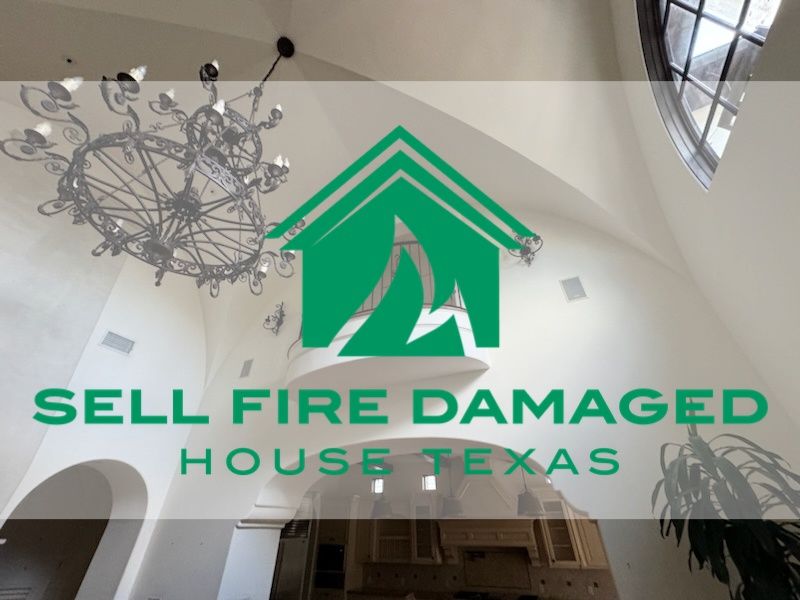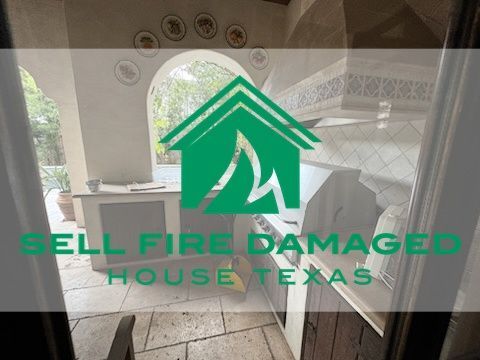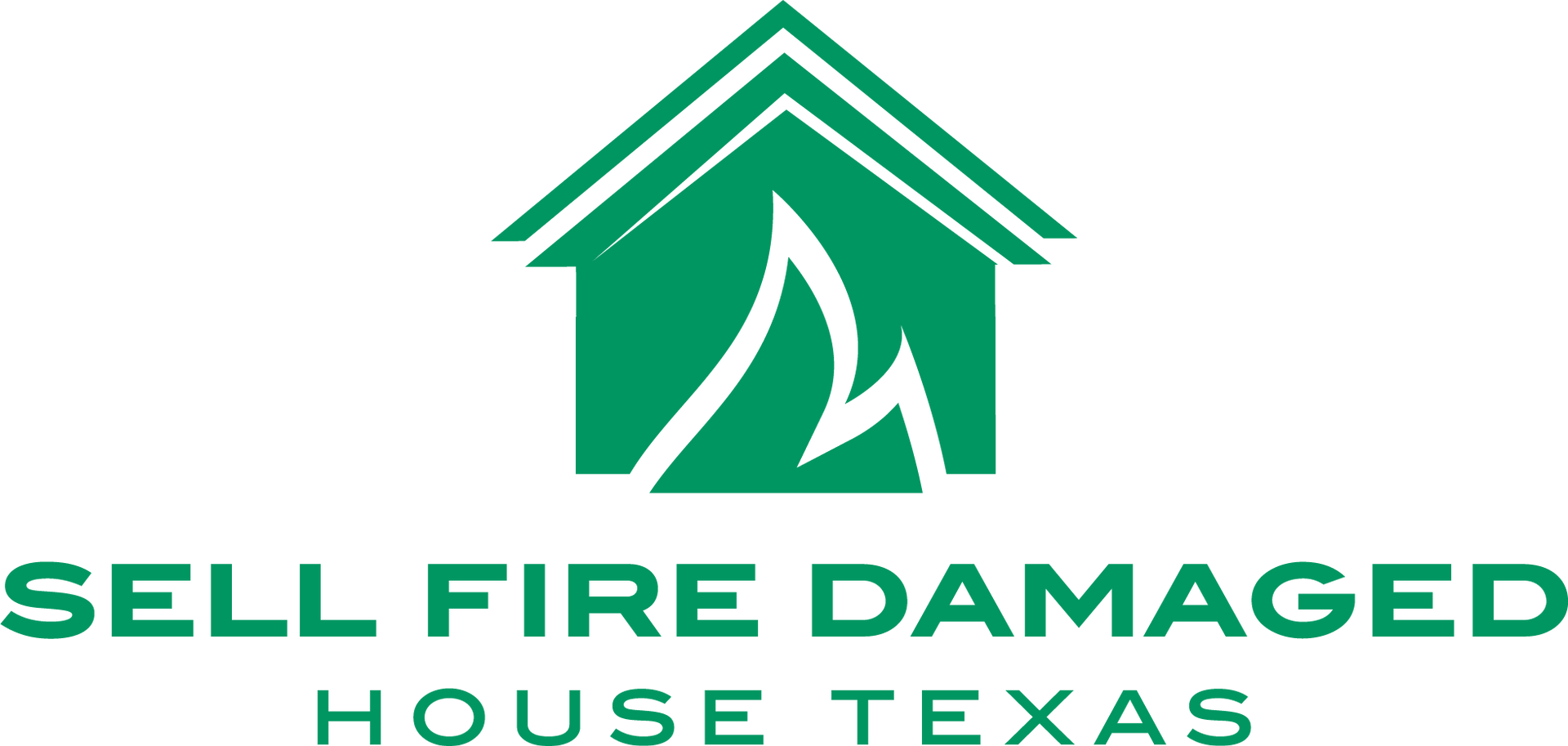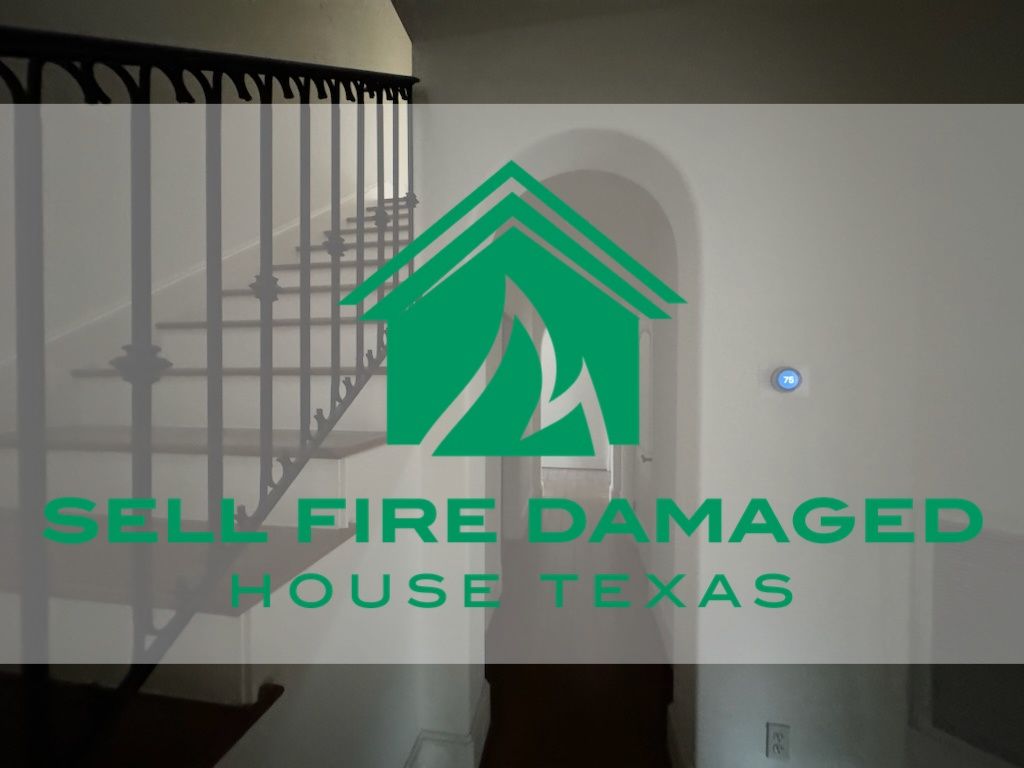How To Get Help After A House Fire Without Insurance In Texas
Published on February 05th, 2025
Free Offer Form
We will get back to you as soon as possible.
Please try again later.
There are many unexpected tragedies in life, and house fires are no exception. A house fire is a traumatic experience, and financial assistance is challenging without insurance.
A burned house can be caused by many things, from electrical damage to negligence. Regardless of the cause, not having fire insurance can complicate recovery.
Our guide is here to navigate financial issues, government help, and how to move forward after your house burns down, especially if you don't have insurance.
Navigating the Aftermath of an Uninsured House Fire In Texas
The biggest priority after a house fire is safety.
Before assessing the fire damage and worrying about insurance, ensure you and your family are safe. Check that the fire is out before attempting to re-enter the burned home.
First Steps: Safety and Damage Evaluation
If you live with multiple people, do a head count to ensure everyone is safe. Call the local fire department to report that your house burned down, and that the fire may spread to nearby houses.
Contact local authorities and gather help to investigate why the fire happened. Assess the damage and seek support for injuries.
Once the fire is out, gather personal belongings, money, and food. Check the damage severity and take documentation. The documentation will help in gaining financial assistance.
Secure the property to prevent the fire from spreading to other houses. Avoid cleaning up personal items; the damage is evidence to file an insurance claim.
Contact relatives or friends and discuss emergency temporary housing. As your local fire department conducts fire reports, staying safe elsewhere will help you decide how to rebuild your life.
Investigating the Fire's Origin
These are a few common causes of house fires:
- Cooking fires
- Heating equipment
- Faulty electrical systems
- Candles
- Smoking
- Christmas trees
Work with your local disaster relief agency to learn why the fire happened. Such details help gain support from charities and disaster relief organizations, like the American Red Cross, United Way, and the Salvation Army.
Prepare to wait as the fire investigation duration wraps up. While waiting for a final report, discuss the causes of the house fire with your family and how to avoid it from repeating.
Coping with Emotional and Psychological Impact
The emotional and psychological impact of a house fire is often devastating.
Acknowledging your emotions is a crucial first step after a house fire. Feeling angry, confused, and upset is normal.
Even if it may be easy to blame a family member or someone else, focusing on recouping losses is more important.
Many organizations have disaster relief services for house fires and natural disasters. Their experts can provide emotional support and guidance for struggling family members.
Understand that regaining lost property and seeking coverage for repairs may take time. Setting expectations and healthy coping mechanisms can help clear the mind.
The Financial Burden of Uninsured Fire Damage In Texas?
Most homeowners have insurance with liability protection against fire damage. However, coverage for damages and repairs may be challenging if you don't have insurance.
Fire insurance is part of homeowners insurance coverage, but some homeowners may opt to skip it to lessen additional living expenses. However, once a house burns down, repair costs may take a greater toll on your life.
Without homeowner's or renter's insurance, a house fire can be extremely difficult to bounce back from. The combination of rebuilding and property damage costs will pile on top of other financial obligations.
Dealing with Mortgage Responsibilities Post-Fire
If your house burned down, and you lack insurance, you may be worrying about the mortgage.
These are steps you can take to avoid extra costs:
- Contact your mortgage lender and landlord to let them know a fire happened. If you have homeowners insurance, and the house burns down, the mortgage lender is co-payable on any amounts for structural repairs up to the remaining mortgage balance.
- Explore forbearance options, temporarily suspending or reducing your mortgage payments for a period to gain money for repairs.
- Discuss your insurance policy with your mortgage lender. Arrangements for loans to rebuild the property must be set.
- Do not forget to pay your mortgage to avoid foreclosure and further stress on your life.
Working with your landlord is crucial in gathering help to rebuild the property. The landlord responsibility after fire includes the following:
- Document property damage.
- Determine if you caused the fire or if it's someone else's fault.
- Relocate you and your family temporarily while rebuilding the house.
- Have the property inspected to check for further repair.
Do not attempt to fix the house yourself. Fire damage is typically extensive, and any repair work should be left to professionals.
Counting the Cost: Personal Property Loss
Counting the cost of such a tragedy is a difficult challenge. If you've ever wondered what happens to property values after a fire, the short answer is that they lose value.
After a house burns down, the property has a lower selling cost and actual cash value depending on the severity of the smoke damage or water damage.
If you need financial resources to keep your family safe, selling the house is an option. Any cash offer you receive will typically be lower in value than the pre-fire cost.
Since you won't be able to file an insurance claim with your insurance company, you'll need alternative options.
Keep these reminders in mind:
- Create an inventory of all the personal belongings damaged in the house fire and their estimated values.
- Estimate the replacement costs for the damaged items based on current market values.
If you decide to sell the house, contact cash buyers or real estate investors online to know its selling value.
Temporary Housing and Repair Expenses
Staying in a safe place is crucial as you consider how to re-enter the damaged home and rebuild your life. Contacting close relatives or friends may help, or other organizations may guide you in finding cheap hotels or shelters.
Even if you don't have homeowners insurance, note that your mortgage lender may ask you to purchase insurance after a house fire.
Most insurance companies provide Additional Living Expense/Loss of Use as part of a homeowners insurance policy.
Additional Living Expense (ALE) pays for temporary housing and other expenses you incur after a house fire to maintain your standard of living.
ALE covers the following expenses:
- Temporary shelter fees
- Utility bills incurred after the house fire
- Groceries
- Animal boarding
- Temporary storage
- Additional mileage (extra expenses to travel to work or school)
- Meals and restaurant bills incurred during the rebuilding process
- Reconnection fees for services like cable and telephone at the rebuilt home
Before requesting ALE from your insurance company, remember that there must be a need for these reimbursements due to the house fire. Note that ALE cannot cover mortgage payments.
ALE does not cover rebuilding expenses. Working with experts and other organizations to find arrangements within your insurance may help finance the restoration.
Legal Avenues for Uninsured Fire Victims In Texas
Determining the cause of the house fire is crucial if you lack insurance. Using documentation, check if the cause was out of your control, such as faulty wiring or negligence.
If you can prove that the house burned down due to external factors, it is grounds for legal action against the suspected parties.
Work with an attorney to better understand the process of suing for damages.
Assigning Blame: When the Fire is Not Your Fault
If the house burned down through arson or negligent acts by a third party, gathering substantial evidence like photographs and videos can help your case.
Cooperate with local authorities and the fire department to determine the causes of the fire.
Some fires are caused either intentionally or unintentionally by others. Listed below are parties who may be liable for fire damage:
- Rental property owners, such as landlords
- Building contractors or subcontractors
- Material/furniture suppliers
- Manufacturers and retailers of electric devices
- Appliance installers
- Property managers
If you have evidence to prove someone caused the fire, you can file a negligence lawsuit against the suspect.
Taking Legal Action Against the At-Fault Party
In a negligence lawsuit, the court determines if a suspected third party caused the house fire through substantial evidence.
Examples of negligence include when someone fails to prevent appliances, wiring, or kitchen equipment from causing a fire.
There is usually more than one liable party to a house fire. If the house burns down because of faulty wiring, the electrician who installed it and their employer may be found responsible.
Landlords and apartment complex owners who fail to install smoke detectors and fire alarms may also be liable.
If the house burns due to arson, proving it may be challenging. If you suspect arson is the cause of the fire,
working with local authorities
may help gather evidence to narrow down a suspect.
Unveiling Financial Aid Options for Uninsured Fire Victims In Texas

Rebuilding a burned home, paying for additional expenses, and seeking legal action can all take a heavy financial toll without insurance and financial provisions from an insurance company.
However, even if they lack insurance, homeowners may seek help from government assistance programs, nonprofit organizations, charities, and loved ones to help rebuild.
Tapping into Government Assistance Programs
Government assistance programs are ready to help you re-enter a normal life after a fire. Here are some options for homeowners, whether they have insurance or not:
- Federal Emergency Management Agency (FEMA): FEMA offers disaster and housing assistance for homeowners and renters. They provide educational resources on rebuilding your home and steps to recoup lost finances.
- Disaster Assistance Improvement Program (DAIP): DAIP provides resources to apply for government aid. They help find shelters, food, essentials and locate lost family members.
- Local State Agencies: Most states have relief funds for disasters and emergencies. Research your state's disaster aid requirements to apply.
While FEMA is beneficial, note their limitations:
- If the fire is not declared a federal disaster, then FEMA cannot help.
- FEMA does not provide help for losses covered by insurance.
- FEMA only helps primary homes affected by fire. Secondary or vacation homes are not covered.
- If the impact is too minimal, FEMA may deny help.
To apply for FEMA, follow these steps:
- Check if the house fire falls under a federal disaster location or if the smoke damage and water damage are severe.
- Contact FEMA online or through their telephone number: 1-800-621-3362
- Submit the following documentation:
- Insurance details (if applicable)
- House fire documentation (photographs, list of losses)
- Government IDs
- Additional evidence of financial need
- Complete any necessary application forms.
- Attend any required interviews or assessments.
- If the application is denied, maintain communication with them to appeal.
Finding Help from Nonprofit Organizations
Nonprofit organizations can assist house fire survivors with their needs, from essentials to legal guidance. These organizations may help you:
- American Red Cross: The American Red Cross helps victims financially and medically, providing a wide range of help during and after a disaster.
- United Way: This group of volunteers provides financial help to house fire victims, advises them on rebuilding, and provides emotional support.
- Salvation Army: The Salvation Army provides clothing, meals, communication services, and shelters for house fire victims.
These steps outline the typical application process with the Red Cross:
- Contact the Red Cross through their online website or telephone number. A representative will ask what happened and how much help you need.
- Schedule an assessment with the representative to determine which essentials you need.
- Submit fire documentation, identification documents, and insurance details.
- Receive immediate help from the Red Cross, such as meals, a temporary home, or clothing.
Homeowners may also contact any local relief groups to gain further help.
Crowdfunding and Charity: Asking for Public Support
Many people seeking crowdfunding or public support turn to GoFundMe. GoFundMe is a website where people needing financial help share their stories and donate a cash offer.
GoFundMe has been helpful for many victims needing cash for medical or disaster expenses. If you are interested in setting up a GoFundMe, follow this process:
- Create a GoFundMe account.
- Create a donation campaign. Include a title, photos, and descriptions of what caused the need for donations.
- Set a target donation goal, along with any donation milestones and incentives.
- Select payment options such as bank details or other payment methods. Note that GoFundMe takes a portion of the donations.
- Share the campaign online with friends or family.
If you cannot create a GoFundMe campaign,
talk to local or religious charities for help. They may know other ways to assist you.
The Road to Recovery: Rebuilding After a Fire In Texas
After the fire has died, rebuilding your home is the next challenge. Depending on the severity of the smoke and water damage, the rebuilding expenses may balloon in cost.
The national average fire damage restoration cost is $2,500, which may rise depending on other damages.
Whole house restoration projects can reach a maximum of $46,500, not including smoke damage and damaged item removal expenses.
Different fire causes, ranging from Class A to Class D, affect pricing. Minor causes fall in Class A, with the severity and prices rising until Class D.
Knowing the exact cause of the fire is important in determining exact payment amounts and how much your insurance can cover, if applicable.
Cleaning Up: First Steps in Restoration
Once the house is safe to re-enter, cleaning up after a fire is the next step.
Check for structural damage, weakened floors, or electrical hazards. Open windows and doors to ventilate the area.
Smoke damage often leaves a lingering smell. To know how to get rid of fire smoke smell in a house, follow these steps:
- Put baking soda in bowls and leave them in corners around the house to absorb the smokey smell.
- Use activated charcoal to absorb the odor, then place them around the house.
- Keep doors and windows open to let fresh air in.
- Hire a professional to install an ozone generator to destroy smoke molecules.
If the damage is severe and a cleanup professional is needed, they charge an amount per square foot. The average cost per square foot for cleanup procedures is $4.00-$6.50.
Hiring professionals will incur additional fees.
Salvaging and Restoring Personal Belongings
A fire causes injuries and severe damage to your items. However, those untouched by the fire may be salvaged.
If you are unsure whether a salvaged item is worth salvaging, check if they have the following materials:
- Textiles: Clothing, towels, bedding, and curtains may be salvageable.
- Glass/Metal/Ceramics: These may be salvageable if not melted or warped.
- Hardwood Floors: This material is usually safe but may require professional cleaning.
- Electronics: These are risky as corrosive, magnetized soot may cause short-circuiting.
With the help of a restoration company, you will gain insights into what can be reused.
Choosing the Right Restoration Company
A restoration company can help rebuild your damaged home.
Before looking for a restoration company, measure the extent of the damage. Report all damages to help the restoration company find the right materials.
Review their payment fees and ensure they have safety protocols with EPA-approved materials. Check online reviews, get recommendations, and consider multiple company options.
Prevention: Lessons Learned From a House Fire IN TEXAS
When a fire occurs and destroys a large part of your home, the traumatic experience often leads to new insights and learnings.
One of the first lessons is creating a home fire escape plan, just in case. Set an escape route for emergencies.
Though fires have many causes, they are preventable. Adopt fire safety measures to save lives.
The Lifesaver: Importance of Home Insurance
Real estate is a costly investment, and home insurance is crucial to protect this investment and ensure your home can be rebuilt after a fire.
Most insurance policies cover many aspects, from personal property to liability coverage. Insurance guarantees that you can claim property losses or damages to be reimbursed by the insurance company.
Renter's insurance is equally helpful. Landlords can only cover losses within the home or building, so renter's insurance protects your items.
Fire insurance safeguards your home from disaster, easing financial burdens.
Fire Safety Measures to Adopt
Fire safety measures don't have to be complicated. Practice these measures to stay safe during a fire:
- Place fire alarms in kitchens and above fireplaces.
- Create evacuation plans.
- Regularly clean to avoid dust or soot buildup.
- Have fire extinguishers ready.
- Unplug unused appliances.
- Teach fire safety to children.
With
basic fire prevention knowledge, avoiding another fire is possible.

Community Support and Recovery in texas
When emergencies happen, trusting in the support and kindness of your community can help you recover.
More than receiving help through donations, many volunteer groups, charities, and kind souls are willing to share their time and energy for your survival.
Maintaining a good community relationship and receiving help through government or nonprofit groups makes recovery easier.
Embracing Community Assistance and Solidarity
There is nothing wrong with asking for help, especially with severe fire damage. Whether you ask friends or neighbors, let them know your situation and sincerely request support.
Be open to accepting offers from others. Thank them for any offers to cook meals, help clean up, or provide a temporary place to stay.
Some areas have support groups for those struggling with similar losses. Take time to attend those groups and gain advice on moving forward financially and emotionally.
Utilizing Local Resources and Support
Learning the relevant emergency contact numbers for local resources is highly important.
Note the numbers for your local fire and police department, medical services, and local disaster service group.
Research local food banks, legal or mental health services, and support groups. Get to know their representatives and keep their contacts if you need more help during recovery.
If more help is needed,
look into FEMA and how they may help you rebuild your home.
Frequently Asked Questions
Tracking all the necessary steps to take after a fire can feel overwhelming. Read more about how to get help after a house fire without insurance.
What Immediate Actions Should I Take after a House Fire?
The first step in knowing what to do after a house fire is securing everyone's safety. Work with local authorities to find a temporary place to stay while the home is unstable. Then, create documentation of all the damages and talk to your insurance agent.
What Are the Financial Implications of a House Fire Without Insurance?
Without insurance, you will face heavy losses in damage. You will have to find ways to pay for the restoration process yourself or seek government help. Staying in shelters, starting the restoration process, and medical visits incur additional expenses.
Can I Seek Legal Recourse if the Fire Was Someone Else’s Fault?
Yes, you can claim negligence and sue a third party if you can prove your innocence. However, note that suing neighbor for house fire damage requires proper evidence and a clear motive.
We recommend getting legal help after house fire if you are certain it was someone else's fault. Discuss how to claim negligence with authorities to know the laws they broke.
What Financial Aid and Assistance Are Available for House Fire Victims Without Insurance?
Contact local and government agencies specializing in disaster relief and house fire victim assistance to get financial assistance after house fire. Their volunteers help provide temporary shelters, meals, water, clothing, and monetary support.
How Can I Recover and Restore My Home After a Fire?
The process of rebuilding a house after a fire is extensive. Homeowners can recover and restore their homes by working with a restoration company and creating evacuation plans.
Know the extent of the damage, any additional fees, and salvage undamaged items.
Conclusion
Not having fire insurance is a heavy burden to pay for, but it is an important lesson in prioritizing safety.
Whether the fire just happened or happened in the recent past, stay in contact with local authorities, relief groups, and community members.
They are the best people to help you find a new place to stay, money for restorations, and emotional support.
Always remember evacuation procedures and
take proactive measures to avoid another incident.
Free Offer Form
We will get back to you as soon as possible.
Please try again later.
We Buy fire damaged homes all over TX
List of Services
-
Houston
-
San Antonio
-
Dallas
-
Austin
-
Fort Worth
-
El Paso
-
Arlington
-
Corpus Christi
-
Plano
-
Lubbock
-
Laredo
-
Irving
-
Garland
-
Frisco
-
McKinney
-
Grand Prairie
-
Amarillo
-
Brownsville
-
Killeen
-
Denton
-
Mesquite city
-
Pasadena
-
McAllen
-
Waco
-
Midland
-
Carrollton
-
Lewisville
-
Abilene
-
Pearland
-
Round Rock
-
College Station
-
Richardson
-
The Woodlands
-
League City
-
Odessa
-
Beaumont
-
Allen
-
Sugar Land
-
Tyler
-
New Braunfels
-
Edinburg
-
Wichita Falls
-
Conroe
-
San Angelo
-
Temple
-
Bryan
-
Mission
-
Georgetown
-
Baytown
-
Atascocita
-
Longview
-
Pharr
-
Flower Mound
-
Cedar Park
-
Mansfield
-
Missouri City
-
Leander
-
Harlingen
-
North Richland Hills
-
San Marcos
-
Pflugerville
-
Victoria
-
Rowlett
-
Spring
-
Wylie
-
Euless
-
Kyle
-
DeSoto
-
Texas City
-
Port Arthur
-
Little Elm
-
Burleson
-
Galveston
-
Rockwall
-
Grapevine
-
Bedford
All Rights Reserved | Sell Fire Damaged House Texas
Terms & Conditions - Privacy Policy - Sitemap

